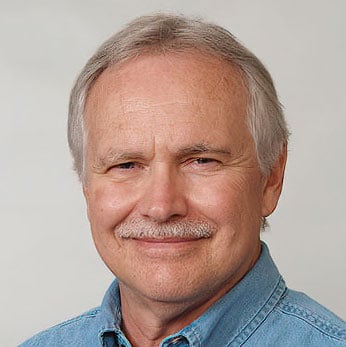The following tip is from the ISA book by Greg McMillan and Hunter Vegas titled 101 Tips for a Successful Automation Career, inspired by the ISA Mentor Program. This is Tip #41, and was written by Hunter.
You’re studying the elephant in school. You look at the pictures, learn about the anatomy and physiology of the animal, research its habits, etc. With enough study you might write a paper or two, and in time you might even be considered an expert on the beast.
Studying an elephant is one thing, but it is quite another to see one up close. The toughness of its skin, the enormous size of the creature, and the deafening blast of its call are impossible to adequately describe in a book. Theory is nice (and necessary), but reality is infinitely more educational.
In a similar vein, control theory is often taught in school. Processes are mathematically simulated and control algorithms are developed. Many of these algorithms provide significantly “improved” control response in their simulated world and are a frequent subject of research papers. Some academic professors consider themselves an expert in the field but have never actually CONTROLLED a process in real life.
Concept: The most versatile and sought-after engineers have worked in a plant and have been involved in day-to-day plant operations.
Details: If at all possible, seek out a position in an operating plant upon graduation from college. What is more, seek opportunities to work side by side with the operators and technicians as soon as possible. Exposure to the real world of controls instead of the theoretical concepts taught in school will be illuminating. It is one thing to talk about installing instrumentation in accessible locations and planning for maintainability, but it is quite another to be chewed out by a technician because you had a transmitter mounted six feet outside the hand rail! Simple things like installing drain and isolation valves or positioning frequently operated valves low for easy operator access are almost never taught in class, yet these modifications mean everything to the operators and technicians who must run and maintain the plant. A couple of years of plant experience will provide new insight into the minor design changes that can make the difference between an easy plant to run and one that is a constant battle.
Some new engineers immediately pursue jobs at engineering firms, but this experience is not nearly as useful as operating plant experience. Most contract engineers design a plant, start it up, and leave. They never get the feedback from operations personnel on what worked or failed to work, or worked well initially then failed over time. It is much more difficult to learn about the realities of the manufacturing plant in such a firm.
Watch-Outs: This same concept can be invaluable to seasoned engineers as well. If you are evaluating outside engineering firms, beware of firms that are staffed with principal engineers with no plant experience. Such engineers may be technically adept, but they may have no clue about how to design a plant for efficient operation. In addition, ask for and study the resumes of the engineers who will be assigned to YOUR project and do not let the firm “bait and switch.” Some firms will use the top engineers to sell a job and then assign weaker engineers to do the work.
Exceptions: Sometimes the recently graduated engineer cannot find a job in a plant and the only option may be a consulting engineering house. If that describes you, volunteer for start-up opportunities and ask to be brought along with the experienced principal engineers during sales calls or HAZOPs. Seek to gain as much in-plant experience as possible.
Insight: When searching for a job, seek out plants that have at least one seasoned engineer under whom you can work. Such a situation will allow you to learn much quicker, especially if the engineer is much older and does not consider you a “threat.”
Rule of Thumb: Upon graduating, seriously consider a position in a plant environment. The hours can be longer and the work more difficult, but the learning opportunities are worth the effort.
About the Author
Gregory K. McMillan, CAP, is a retired Senior Fellow from Solutia/Monsanto where he worked in engineering technology on process control improvement. Greg was also an affiliate professor for Washington University in Saint Louis. Greg is an ISA Fellow and received the ISA Kermit Fischer Environmental Award for pH control in 1991, the Control magazine Engineer of the Year award for the process industry in 1994, was inducted into the Control magazine Process Automation Hall of Fame in 2001, was honored by InTech magazine in 2003 as one of the most influential innovators in automation, and received the ISA Life Achievement Award in 2010. Greg is the author of numerous books on process control, including Advances in Reactor Measurement and Control and Essentials of Modern Measurements and Final Elements in the Process Industry. Greg has been the monthly "Control Talk" columnist for Control magazine since 2002. Presently, Greg is a part time modeling and control consultant in Technology for Process Simulation for Emerson Automation Solutions specializing in the use of the virtual plant for exploring new opportunities. He spends most of his time writing, teaching and leading the ISA Mentor Program he founded in 2011.
Hunter Vegas, P.E., holds a B.S.E.E. degree from Tulane University and an M.B.A. from Wake Forest University. His job titles have included instrument engineer, production engineer, instrumentation group leader, principal automation engineer, and unit production manager. In 2001, he joined Avid Solutions, Inc., as an engineering manager and lead project engineer, where he works today. Hunter has executed nearly 2,000 instrumentation and control projects over his career, with budgets ranging from a few thousand to millions of dollars. He is proficient in field instrumentation sizing and selection, safety interlock design, electrical design, advanced control strategy, and numerous control system hardware and software platforms.




